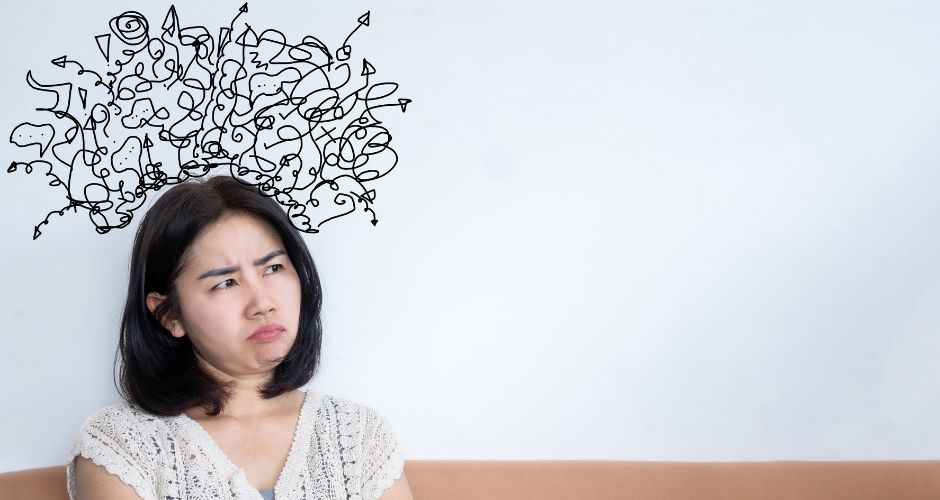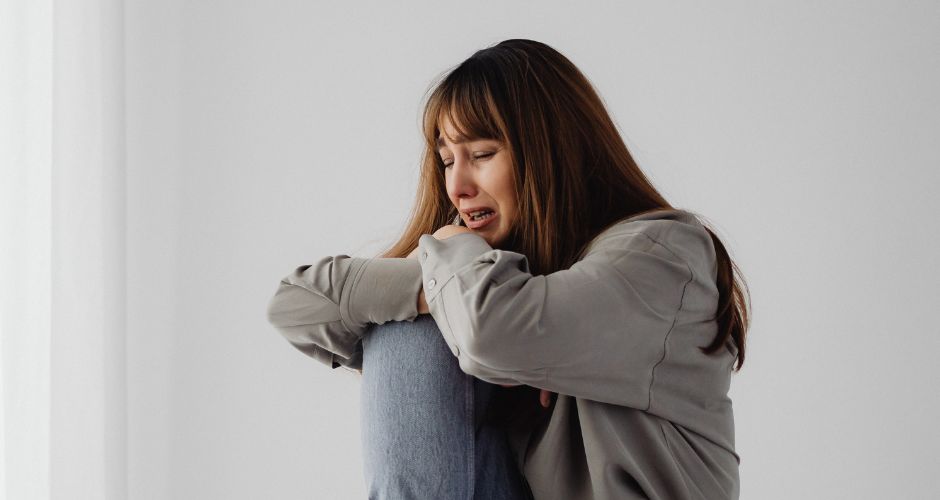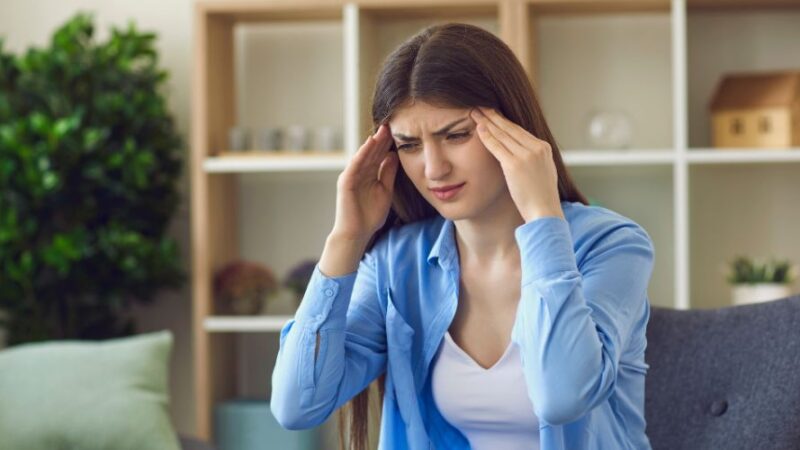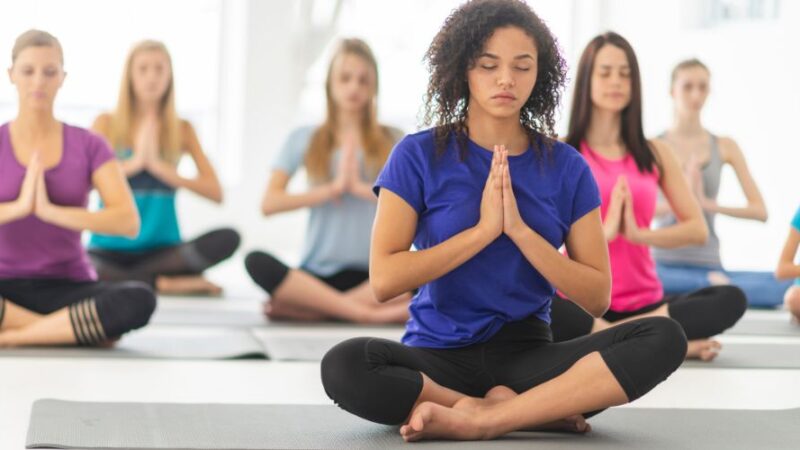Why Do I Wake Up Anxious Every Morning?

Waking up should feel like a fresh start. But for many people, it begins with a racing heart, a tight chest, and a sense of dread – even before getting out of bed.
If you’re constantly asking yourself, “Why do I feel anxious the moment I wake up?” you’re not alone. Morning anxiety is a real issue and can be both confusing and exhausting.
This article breaks down the reasons behind morning anxiety, provides real-life relatable scenarios, and offers practical solutions to help you start your day with a calmer mind.
What Is Morning Anxiety?
Morning anxiety isn’t an official medical diagnosis, but it’s a term commonly used to describe waking up with feelings of:
- Nervousness
- Restlessness
- Panic
- Tension or unease
- Increased heart rate or tight chest
- Negative thoughts right as your day begins

Why Does It Happen in the Morning?
1. Cortisol – The “Stress Hormone” Peaks Early
Cortisol helps your body wake up, stay alert, and respond to threats. But in people with anxiety, cortisol spikes can feel overwhelming.
Example:
Around 6–8 AM, cortisol naturally increases. For some, this surge leads to a racing heart, even if there’s no real “threat.”
2. Unresolved Worries From the Night Before
Sometimes, your brain picks up where it left off – especially if you fell asleep with stress on your mind.
Real-life scenario:
You went to bed worried about a presentation or bills. The next morning, your brain instantly resumes those anxious thoughts before you’ve even brushed your teeth.
3. Poor Sleep or Restless Nights
Lack of deep, quality sleep increases emotional reactivity. When you’re sleep-deprived, even small issues feel huge.
Example:
You tossed and turned all night. When you wake, your body is already tired, and your brain jumps into panic mode: “I’ll never get through today.”
4. Anticipatory Anxiety About the Day Ahead
Morning anxiety often stems from anticipating stressful tasks like:
- A difficult conversation
- An overwhelming to-do list
- Social interactions
- Commuting or work pressure
Example:
You’ve got back-to-back meetings, and your brain starts racing through worst-case scenarios before you even get dressed.
5. Blood Sugar Fluctuations
Your body hasn’t eaten in 8+ hours. A drop in blood sugar can mimic anxiety symptoms – shakiness, dizziness, and irritability.
What happens:
You wake up feeling on edge, but once you eat something, the anxiety eases. That’s your body telling you it needs fuel.
6. Negative Morning Routines or Habits
Many people unconsciously sabotage their mornings by:
- Checking emails or social media right away
- Rushing with no time for self-care
- Skipping breakfast
- Starting the day in a chaotic environment
Example:
Your alarm goes off late, you skip breakfast, and read a stressful work email before brushing your teeth. That frantic energy sets the tone for the whole day.
Also Check How to Deal with Dental Phobia or Anxiety?
Real-Life Situations That Reflect Morning Anxiety
🔹 The Parent Struggling to “Hold It All Together”
You wake up already thinking about lunch boxes, getting the kids ready, your boss expecting results, and the mountain of laundry from last night. You haven’t even stood up yet, and it feels like you’re behind.
🔹 The Student With Exam or Performance Pressure
You open your eyes and instantly remember today’s quiz, upcoming deadlines, and the group project where no one is cooperating. Your stomach tightens. “Can I really handle this again today?”
🔹 The Professional Facing Burnout
Emails, deadlines, meetings, expectations. Even weekends don’t feel restful anymore. Your alarm becomes a trigger – not a fresh start.
How to Reduce Morning Anxiety
1. Start a Calm Bedtime Routine
Reducing morning anxiety begins the night before. Try:
- No screens an hour before bed
- Light stretching or breathing exercises
- Journaling thoughts to “unload” your mind
- Sleep by the same time each night
Tip: Keep a “brain dump” journal on your nightstand. Write your worries before bed so your brain doesn’t carry them into the morning.
Want to know Why Do I Feel Sleepy All the Time?
2. Avoid Checking Your Phone Immediately
Resist the urge to check emails, social media, or news when you wake up. Give yourself 30–60 minutes of quiet time.
What to do instead:
Breathe deeply, stretch, open a window, or sip water. Let your body adjust before engaging with the outside world.
3. Eat a Balanced Breakfast
Choose something with protein and complex carbs to stabilize blood sugar.
Examples:
Eggs and toast, oatmeal with fruit, Greek yogurt with nuts – not just coffee and a muffin.
4. Do Light Morning Movement
You don’t need a full workout. A 5–10 minute walk, yoga, or simple stretches help calm your nervous system.
Tip: Even standing and taking five deep breaths with your arms above your head can reset your stress response.
5. Practice Mindfulness or Breathing Exercises
Try this quick breathing pattern to calm morning anxiety:
- Inhale for 4 seconds
- Hold for 4 seconds
- Exhale for 6 seconds
- Repeat for 2–3 minutes
Or use an app: Headspace, Calm, or Insight Timer for guided meditations.
6. Plan Something Positive in the Morning
It could be:
- Listening to a favorite song
- Writing a gratitude note
- Reading something inspiring
- A warm shower with your favorite scent
Real-life example: One person I know sets her coffee to brew 5 minutes before her alarm, so she wakes up to the smell and starts with something she enjoys.
7. Seek Support If It Persists
If morning anxiety is interfering with your life, consider:
- Talking to a therapist
- Getting evaluated for generalized anxiety or depression
- Discussing medications or holistic treatments with a doctor
There’s no shame in getting help – anxiety is common, treatable, and doesn’t define your strength.
Is It Anxiety or Just Overthinking?
Overthinking is when your mind repeatedly dwells on a problem, decision, or fear-often going in circles. It can lead to mental exhaustion but doesn’t always affect your body.
Anxiety, on the other hand, is a full-body response. It can start with overthinking, but it’s often accompanied by physical symptoms like:
Imagine lying in bed wondering if you locked the door. Overthinking means you keep replaying it in your mind. Anxiety means your heart is racing, you’re imagining break-ins, and you can’t fall asleep because your body feels on high alert.
Why Does Anxiety Cause Chest Tightness or Dizziness?
Anxiety triggers your fight or flight response, which prepares your body to face danger-even when no real threat exists. This causes:
- Chest tightness: Your muscles tense up, and rapid breathing can make your chest feel constricted.
- Dizziness: Anxiety can change your breathing pattern (hyperventilation), lowering carbon dioxide levels in your blood, which affects blood flow to the brain.
⚠️ Note: Chest tightness or dizziness should be taken seriously. If symptoms persist or feel extreme, rule out heart or neurological issues with a doctor.
Is It Anxiety or a Panic Attack?
Anxiety is more long-term and builds gradually-it can last for hours or days.
Panic attacks are sudden, intense waves of fear or discomfort that peak within minutes. Symptoms may include:
- Chest pain
- Sweating
- Trembling
- Feeling like you’re choking or losing control
🧍♂️ Example: Feeling anxious before a presentation? That’s anxiety. Suddenly feeling like you can’t breathe, your heart’s pounding, and you might faint-out of nowhere? That’s likely a panic attack.
Best Foods to Eat (and Avoid) for Anxiety Relief
🟢 Best Foods to Eat:
- Oats: Stabilize blood sugar and boost serotonin.
- Fatty fish (salmon, sardines): High in omega-3s which support brain health.
- Leafy greens (spinach, kale): Magnesium-rich, which helps relax the nervous system.
- Dark chocolate (in moderation): Contains flavonoids and can improve mood.
- Chamomile tea: Natural calming effect.
🔴 Foods to Avoid:
- Caffeine: Can trigger jitteriness and worsen anxiety symptoms.
- Sugar and refined carbs: Cause energy crashes that worsen mood swings.
- Alcohol: Initially calming but disrupts sleep and mood balance.
- Processed foods: Often high in additives and low in nutrients.
FAQ: People Also Ask
Q1: Is waking up anxious a sign of an anxiety disorder?
Not always. It could be due to stress, sleep issues, or lifestyle habits. But if it happens frequently and affects your functioning, it may be worth seeking help.
Q2: Can morning anxiety go away?
Yes, with consistent routines, awareness, and sometimes therapy or lifestyle changes, many people see huge improvements.
Q3: Why do I feel better later in the day?
Morning anxiety often improves as cortisol levels settle and your brain becomes more engaged in tasks, reducing rumination.
Q4: Should I drink coffee in the morning if I’m anxious?
Be cautious. Caffeine can spike heart rate and mimic anxiety. Try reducing your intake or switching to decaf if mornings are difficult.
Q5: Can diet alone treat anxiety?
No, but it can support your mental health. A balanced diet combined with sleep, exercise, and therapy is most effective.
Q6: Why do I feel anxious for no reason?
Sometimes anxiety is triggered subconsciously-stress buildup, past trauma, hormonal changes, or even gut health can play a role.
Q7: Can anxiety go away without medication?
Yes, many people manage anxiety through lifestyle changes, therapy (like CBT), and mindfulness techniques.






